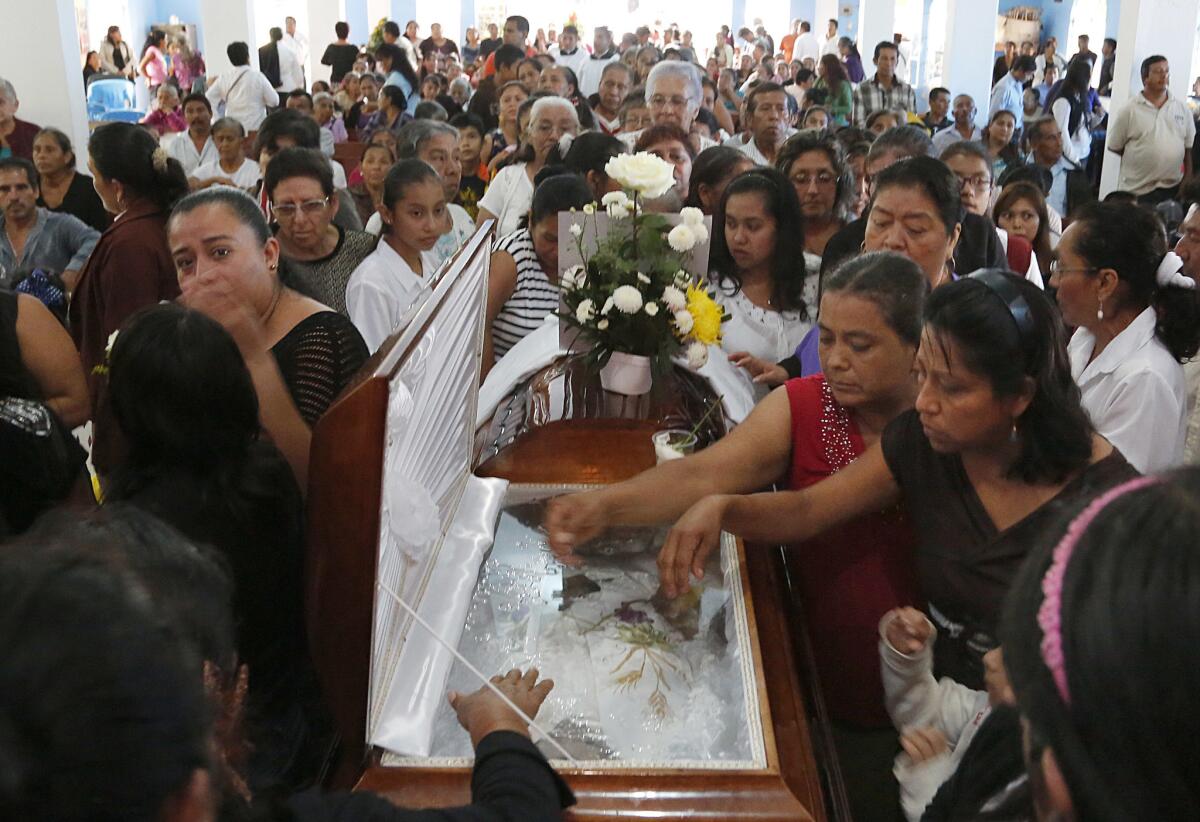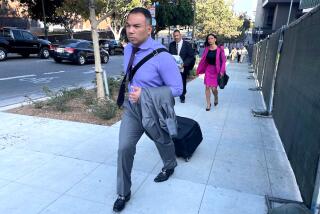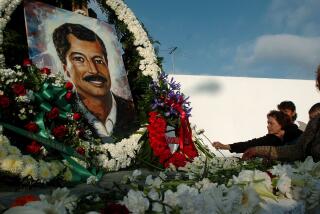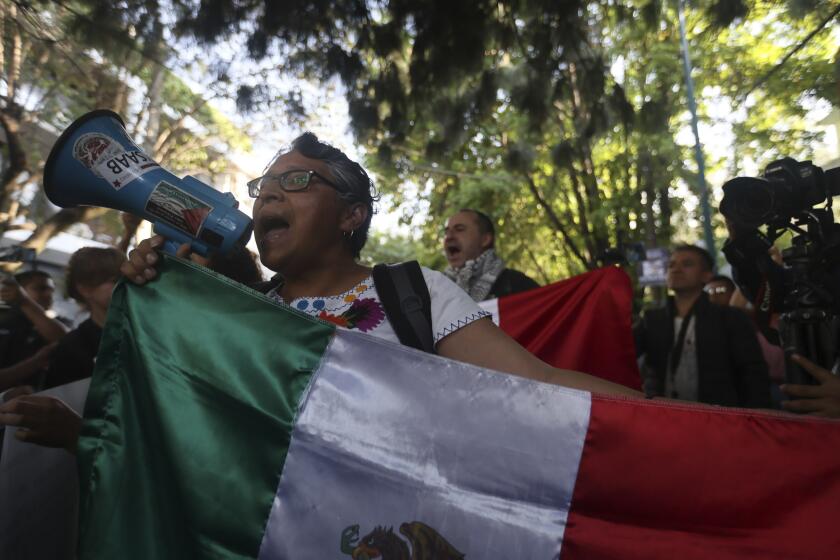A federal judge who ruled on some of Mexico’s highest profile criminal cases was gunned down in broad daylight

The jogger trots down a narrow sidewalk, apparently oblivious to the slim man in black trailing a few yards behind. Early morning traffic passes as usual. Nothing seems amiss.
As the jogger crosses a street, his pursuer accelerates and raises his right hand to the jogger’s head.
The jogger collapses, coils into a fetal position, then rolls onto his back with arms and legs extended. Blood seeping from his head flows into the street.
A gun comes into view as the assailant turns and sprints away, startling a pedestrian and a cyclist.
The video, captured by a security camera Monday in the upscale Mexico City exurb of Metepec and leaked to the media, has caused a sensation here.
The victim was Vicente Antonio Bermudez Zacarias, a 37-year-old federal judge based in the state of Mexico, just outside Mexico City. Transported to the hospital, he was pronounced dead of a single gunshot to the head.
Even in a country that has become synonymous with violence, the shooting of a federal judge in daylight is a stunning occurrence. The assault drew broad condemnation and official vows to find whoever was responsible.
Mexican President Enrique Peña Nieto said he had ordered the attorney general to investigate the “very lamentable act.”
Authorities have offered no motive. The video would seem to suggest a professional hit by someone familiar with the judge’s routines. It was not clear whether Bermudez had received threats before his slaying.
His extensive caseload included some of Mexico’s highest profile criminal cases.
He was involved in legal rulings regarding the 43 college students who disappeared in the state of Guerrero two years ago and are presumed to have been killed. They were last seen in the custody of local police.
This month, the judge blocked a request from Gildardo Lopez, suspected of being a hit man for a Guerrero-based drug gang — to be transferred from the high-security Altiplano prison outside Mexico City.
Among the suspects Bermudez has jailed are an operative of the ultra-violent Zetas gang and a boss in the so-called Jalisco New Generation cartel, a leading drug trafficking organization.
His judicial district issued an order last year stalling the extradition of Joaquin “El Chapo” Guzman, Mexico’s most notorious trafficker, to the United States, where he faces charges of murder and other crimes. Mexican officials say they expect the extradition to occur by February.
One of Guzman’s lawyers, Jose Refugio Rodriguez, denounced as “yellow journalism” any effort to link his client to the judge’s assassination. “I have heard that he was … very honest, impeccable, and that he was widely respected,” he told the Televisa network. “There is no basis to see Joaquin Guzman behind this act.”
Whoever the killer, the assassination has quickly become a testament to what many Mexicans view as culture of impunity.
The judiciary “lives under a constant siege of criminal interests that look to twist institutional rulings through the classic method of filling the judge with money or lead,” columnist Julio Hernandez Lopez wrote in the newspaper La Jornada. “To a large extent, the mechanisms of judicial decision-making have been compromised by this mafioso threat that in no way has been confronted and exterminated.”
There has been some progress, but youth drug smuggling persists at the U.S.-Mexico border »
The day before the judge was killed, the Catholic Archdiocese of Mexico warned publicly that the country was “in flames” because of unchecked violence, with proliferating numbers of kidnappings, extortion threats and assaults on streets and in buses and trains.
“In certain zones of the country, violence is escalating and appears uncontainable,” the church declared in its weekly newsletter From the Faith.
At times the country feels at war with itself. Five Mexican soldiers were killed last month in an ambush on a military convoy in northern Mexico, suspected of being orchestrated by sons of Guzman.
The church itself has suffered, with more than a dozen priests killed across the country in the last four years, including two last month in the state of Veracruz. In that case, police announced the arrest of a suspect this week.
Veracruz has been an epicenter of violence, including the killings of journalists and others who were critical of the long-ruling Institutional Revolutionary Party. Disgust over the killings contributed to the party’s defeat in June in the election for governor there.
On Tuesday, the Mexican media reported that an arrest warrant for “organized crime” and “illegal enrichment” had been issued against Javier Duarte, who stepped down from the governorship last week with six weeks remaining in his term amid widespread allegations that he was corrupt and implicated in violence.
Human rights groups say that during Duarte’s six years in office hundreds of people “disappeared” and were killed in Veracruz, where rival cartels battle it out for access to lucrative drug- and people-smuggling routes to the United States. Many victims remain missing.
In a recent case, four university students went missing Sept. 29 and their mutilated corpses were found several days later. As is often the case, it remains unclear why they were targeted.
Cecilia Sanchez in The Times’ Mexico City bureau contributed to this report.
ALSO
Russia’s bombing pause in Aleppo may be an effort to dial down the tension with U.S.
Baseball was nearly dead in Taiwan after a major cheating scandal. Here’s how it made a comeback
Iraqi forces face Islamic State snipers, rockets and suicide bombers during Mosul offensive
More to Read
Start your day right
Sign up for Essential California for news, features and recommendations from the L.A. Times and beyond in your inbox six days a week.
You may occasionally receive promotional content from the Los Angeles Times.






